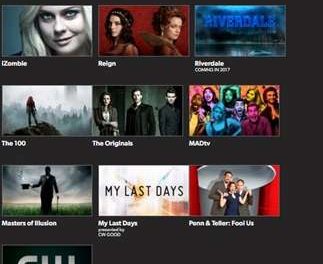Providing a certain sense of symmetry, my first blog of the academic year returns to the same theme I examined way back in July, when I looked at options for bringing ‘old’ TV into the digital age. Earlier this month saw the launch of BBC Store – the Corporation’s official online purveyor of digitised programming, not to be confused with the longer-established BBC Shop – which does precisely this: 7,000 hours of content, old and new, is now available to purchase and view via iPlayer – as proudly trumpeted in the Radio Times – ‘from Sherlock to Only Fools and Horses’.
The RT points out that, with only 10% of the BBC’s back catalogue thus far released on DVD[1] – and sales dwindling – the Store represents the BBC’s attempt to move with the times, while also generating a new revenue stream (thus compensating for the still-frozen licence fee). The message is very much that DVD – the original digital AV storage and playback format – is a bit of a dinosaur, and streaming the future. Despite the fact that every instalment of Sherlock and Only Fools and Horses has already been made available on DVD (and, in former’s case, on BluRay), the (possibly wishful?) thinking here seems to be that everyone who has already purchased ‘hard’ copies of these reliable bankers now will rush to buy them again for iPlayer. The same applies to much of the material made available since the Store’s launch on 5th November, but as a television historian I am far more interested in those rarer items which have never before seen the light of day.
And indeed, several treasures have already been unearthed. The Dennis Potter at the BBC collection, while replicating some of the material already released on DVD in The Essential Dennis Potter,[2] draws more fully upon the rich vein of single plays which made Potter’s name in the 1960s and 70s, including ‘A Beast with Two Backs’, ‘Traitor’ and ‘Double Dare’, none of which has (to my knowledge) ever received official commercial release before.
According to the RT, up to 70 hours of content will be added every week, with over 10,000 hours to be made available by Christmas, when Apps for smartphones, tablets and what-have-you will also be on the cards. It all sounds too good to be true, and in light of the tasters already provided, it is difficult for anyone with an interest in British television history not to feel more than a little excited. No less a figure than Peter Capaldi has already endorsed the service, so it must be all right. Who knows; if this model proves successful, maybe ITV will follow suit.
Imagine being able to access the entire Crossroads archive at will…
Well, perhaps not, but it all sounds very promising in a contemporary, digital platform-y way.
And yet…
I like DVDs and BluRays. The wonderful Matt Hills article, ‘From the Box in the Corner to the Box Set on Your Shelf’, was a key reading on a module I used to teach. Although it probably seemed somewhat archaic to our tech-savvy undergraduates, this piece always resonated with me. I enjoy admiring my (ever-increasing) collection of archive TV discs, neatly ordered on the heaving shelves of various IKEA units; the fact that I can hold what was once regarded as a piece of mere ephemera in my hand, nicely packaged and reassuringly solid. It gives television programmes added value, placing them on the same level as works of literature; equally important as cultural artefacts, and just as deserving of serious study.
Somehow, allowing them to vanish once more into the virtual ether takes some of the magic out of them. Don’t misunderstand me; I will certainly become a patron of the BBC Store, purchasing whatever catches my fancy that isn’t available on disc. I will probably buy at an ever-increasing rate, like a rabid sales shopper, as a greater number of archive items are released (there’s still no sign of Michael J. Bird’s 1983 serial The Dark Side of the Sun, but give it time; give it time…). However, a small part of me won’t enjoy settling down to watch them quite as much as if I were plucking them from the shelf, like some lovely bound volume of original Strand magazines, or a first edition of The Pickwick Papers.[3]
Maybe it’s just my age (which, like cyberspace, is increasing all the time), but I don’t think I’m alone in feeling a trifle wistful. Earlier this year the final DVD in the ‘classic’ Doctor Who range, ‘The Underwater Menace’, was released, after much argy-bargy. As you will doubtless recall, this is the one with the unconvincing Fish People who ‘swim’ on perfectly visible Kirby wires. Until 2011 only episode three of this four-part story remained in the BBC’s archives, but then a former TVS engineer came across the second instalment in a boxful of reels he had purchased at a school fete. It was expected that a restored DVD would swiftly see the light of day, but as months – and then years – passed, this eventuality began to seem increasingly unlikely. A release was announced, then postponed, and then cancelled, and for a time it seemed that some pristine yet soulless digital download would be the only option – much to the ire of fans who had spent the previous decade building up their collection of WhoDVDs, only to be left with a single, unseemly gap in the Troughtons.[4] In time-honoured fashion, a petition was launched (online, of course), to which I myself appended my moniker.
And we won; the DVD came out last month, complete with some lovely extras (though certain parts of the commentary were a little tedious, to be honest).[5] This fan victory illustrates the extent to which collectability still counts with an (admittedly particularly devoted) section of the public. It probably is purely a generational thing; I have never been tempted by Netflix, and gave up amazon Prime as a bad job even before my free trial expired. For me, the various broadcasters’ whizz-bang iPlayers are useful for catching up on what I’ve missed – and the BBC in particular turns up some lovely archive gems via BBC Four Collections – but I much prefer my collectibles as tangible objects.
Maybe the BBC Store will finally break me of this habit; it’s certainly offering up a tempting selection of goodies ready to be slipped into my virtual stocking this Christmas. And it will at least save me having to move into a larger flat when my DVD and BluRay collection starts spilling over into the kitchen.
I suspect, though, that a small part of me will, like a stereo buff who insists that everything sounds better on vinyl, continue to wish I had them in physical form, nestling up on the shelf…
Dr Richard Hewett is Lecturer in Media Theory at the University of Salford’s School of Arts and Media. He has contributed articles to The Journal of British Cinema and Television, The Historical Journal of Film, Radio and Television, Critical Studies in Television and Adaptation. His book, The Changing Spaces of Television Acting, will be published by Manchester University Press in 2016.
[1] It is not made clear, however, whether this refers to 10% of total content produced, or that which remains in the archive.
[2] Namely, the Nigel Barton plays, ‘Brimstone and Treacle’, ‘Blue Remembered Hills’, Pennies from Heaven, and – perhaps inevitably – The Singing Detective.
[3] As you might guess, I don’t much care for Kindles either.
[4] This is not a euphemism, though I admit it sounds like one.
[5] Unsurprisingly, the story is also available to purchase at the BBC Store in digital format.





